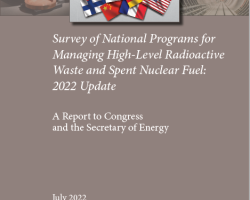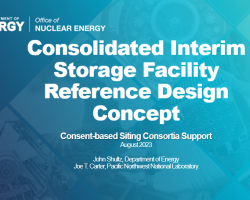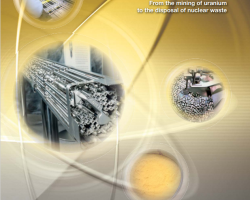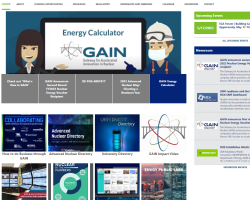Category of Content
Siting Experience Documents Only
Publication Date
Subject Matter
Keywords
Used Fuel Disposition Storage, Transportation and Disposal Interface Study
Used Fuel Disposition Storage, Transportation and Disposal Interface Study
Cost Implications of an Interim Storage Facility in the Waste Management System
Cost Implications of an Interim Storage Facility in the Waste Management System
Generic Design Alternatives for Dry Storage of Spent Nuclear Fuel
Generic Design Alternatives for Dry Storage of Spent Nuclear Fuel
Generic Design Alternatives for Dry Storage of Spent Nuclear Fuel
Generic Design Alternatives for Dry Storage of Spent Nuclear Fuel
Generic Design Alternatives for Dry Storage of Spent Nuclear Fuel
Generic Design Alternatives for Dry Storage of Spent Nuclear Fuel
UNF-ST&DARDS Documentation Release 3.0
UNF-ST&DARDS Documentation Release 3.0
Multi-Year Plan to Prepare DOE-Managed Spent fuel for Transportation
Multi-Year Plan to Prepare DOE-Managed Spent fuel for Transportation
Potential Cost Implications of an Interim Storage Facility for Commercial SNF
Potential Cost Implications of an Interim Storage Facility for Commercial SNF
Generic Design Alternatives for Dry Storage of Spent Nuclear Fuel
Generic Design Alternatives for Dry Storage of Spent Nuclear Fuel
Cost Sensitivity Analysis for Consolidated Interim Storage of Spent Fuel: Evaluating the Effect of Economic Environment Parameters
Cost Sensitivity Analysis for Consolidated Interim Storage of Spent Fuel: Evaluating the Effect of Economic Environment Parameters
Generic Design Alternatives for Dry Storage of Spent Nuclear Fuel
Generic Design Alternatives for Dry Storage of Spent Nuclear Fuel
Monitored Retrievable Storage Facility Conceptual Design Report
Monitored Retrievable Storage Facility Conceptual Design Report
Survey of National Programs for Managing High-Level Radioactive Waste and Spent Nuclear Fuel: 2022 Update
Survey of National Programs for Managing High-Level Radioactive Waste and Spent Nuclear Fuel: 2022 Update
In October 2009, the U.S. Nuclear Waste Technical Review Board (Board or NWTRB) published Survey of National Programs for Managing High-Level Radioactive Waste and Spent Nuclear Fuel. For each of the 13 national programs studied, the report catalogued 15 institutional arrangements that had been set in place and 15 technical approaches that had been taken to design repository systems for the long-term management of high-activity radioactive waste.
Consolidated Interim Storage Facility Reference Design Concept
Consolidated Interim Storage Facility Reference Design Concept
Presentation slides on the Consolidated Interim Storage Facility Reference Design Concept, including site plans; handling, inspection and repackaging concepts and facilities; and cost and staffing estimates.
Summary of Consolidated Interim Storage Advantages and Disadvantages from an Integrated Systems Perspective from Prior Reports and Studies
Summary of Consolidated Interim Storage Advantages and Disadvantages from an Integrated Systems Perspective from Prior Reports and Studies
The question of whether centralized storage of civilian spent nuclear fuel (SNF) should be part of the federal waste management system as an intermediate step before permanent disposal has been debated for more than four decades. Centralized storage facilities were included as a potential component of the U.S. spent fuel management system in the Nuclear Waste Policy Act of 1982 (NWPA), but the NWPA did not identify these facilities as being essential.
Getting to the Core of the Nuclear Fuel Cycle: From the mining of uranium to the disposal of nuclear waste
Getting to the Core of the Nuclear Fuel Cycle: From the mining of uranium to the disposal of nuclear waste
This brochure shortly describes the various steps of the nuclear fuel cycle by covering areas from mining and milling to disposal of spent fuel and other radioactive waste.
Gateway for Accelerated Innovation in Nuclear (GAIN) Website
Gateway for Accelerated Innovation in Nuclear (GAIN) Website
Website for Gateway for Accelerated Innovation in Nuclear (GAIN).
The mission of the Department of Energy Office of Nuclear Energy (DOE-NE) is to advance nuclear power as a resource capable of meeting the nation's energy, environmental and national security needs by resolving technical, cost, safety, proliferation resistance, and security barriers through research, development and demonstration ﴾RD&D﴿.




